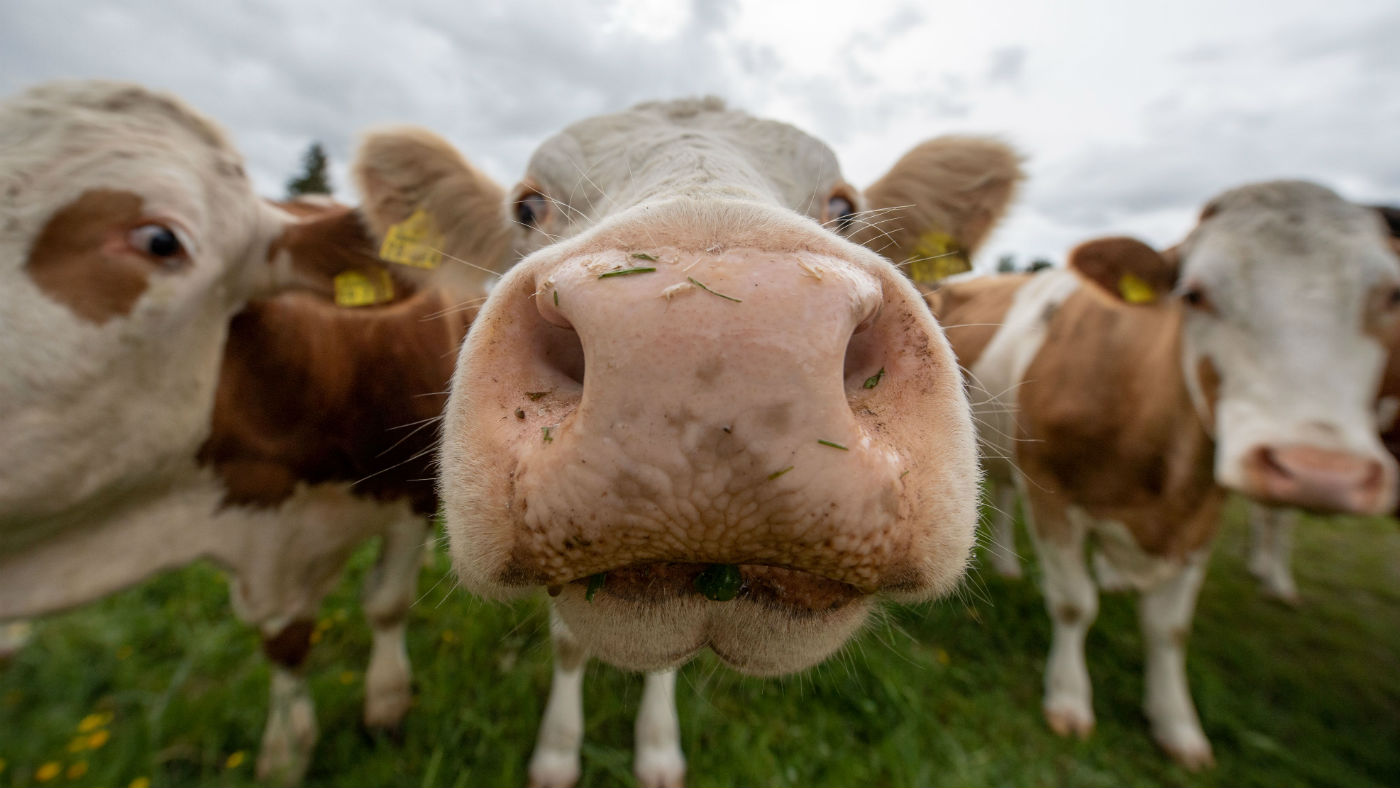Is the future of meat animal-free?
Report claims majority of meat people eat by 2040 will not come from slaughtered livestock

A free daily email with the biggest news stories of the day – and the best features from TheWeek.com
You are now subscribed
Your newsletter sign-up was successful
More than half the “meat” consumed around the world in 2040 will not come from slaughtered animals, amid growing unease at the environmental and ethical impact of the global food industry, a major report has predicted.
Based on interviews with industry experts, global consultancy firm AT Kearney estimates that in 20 years around 60% of all meat will either be cultured alternatives grown in vats or plant-based products that look and taste like meat.
It predicts that 35% of meat will be cultured, created “through exponential cell growth in bioreactors” and not involving animal slaughter. A further 25% will be vegan replacements made from plant-based products, as part of a “serious disruption” of the meat industry, it says.
The Week
Escape your echo chamber. Get the facts behind the news, plus analysis from multiple perspectives.

Sign up for The Week's Free Newsletters
From our morning news briefing to a weekly Good News Newsletter, get the best of The Week delivered directly to your inbox.
From our morning news briefing to a weekly Good News Newsletter, get the best of The Week delivered directly to your inbox.
“You’re more likely to be throwing a lab-grown steak on the grill than one taken from a living, breathing cow,” concludes sustainability website Treehugger.
The Independent says “the transition will be the result of a growing awareness of the environmental consequences of conventional meat farming methods and the rising demand for vegan alternatives”. The report also highlights “the concerns people have about the welfare of animals under industrial farming”, says The Guardian.
The conventional meat industry raises billions of animals and turns over £785bn every year.
However, meat production is also highly inefficient. For example, it takes around 3kg of grain to produce 1kg of poultry meat. Because of this “meat production comes with huge environmental impacts, scientists have warned, among which are greenhouse emissions that drive climate change, the pollution of rivers and oceans and the destruction of wild habitats for farmland”, says the Daily Mail.
A free daily email with the biggest news stories of the day – and the best features from TheWeek.com
The authors of the report said: “The large-scale livestock industry is viewed by many as an unnecessary evil. With the advantages of novel vegan meat replacements and cultured meat over conventionally produced meat, it is only a matter of time before they capture a substantial market share.”
AT Kearney estimates around $1bn has already been invested developing vegan products such as replacement beef burgers and scrambled eggs, “including by companies that dominate the conventional meat market”, says the Guardian.
As well as environmental concerns and worries about animal welfare, the switch to non-livestock alternatives will also carry an added health benefit for consumers, found AT Kearney.
While almost most half the world’s crops are fed to animals, only 15% of the plant calories end up being eaten by humans as meat. By contrast, the report says, cultured meat and vegan meat replacements retain about three-quarters of their input calories.
The report also cites surveys of consumers in China, India and the US that suggest potential customer wariness towards cultured meat will not provide a hurdle for its widespread adoption.
“For passionate meat-eaters, the predicted rise of cultured meat products means that they still get to enjoy the same diet they always have, but without the same environmental and animal cost attached,” says Carsten Gerhardt, a partner at AT Kearney.
-
 The environmental cost of GLP-1s
The environmental cost of GLP-1sThe explainer Producing the drugs is a dirty process
-
 Nuuk becomes ground zero for Greenland’s diplomatic straits
Nuuk becomes ground zero for Greenland’s diplomatic straitsIN THE SPOTLIGHT A flurry of new consular activity in Nuuk shows how important Greenland has become to Europeans’ anxiety about American imperialism
-
 ‘This is something that happens all too often’
‘This is something that happens all too often’Instant Opinion Opinion, comment and editorials of the day
-
 Epstein files topple law CEO, roil UK government
Epstein files topple law CEO, roil UK governmentSpeed Read Peter Mandelson, Britain’s former ambassador to the US, is caught up in the scandal
-
 Iran and US prepare to meet after skirmishes
Iran and US prepare to meet after skirmishesSpeed Read The incident comes amid heightened tensions in the Middle East
-
 Israel retrieves final hostage’s body from Gaza
Israel retrieves final hostage’s body from GazaSpeed Read The 24-year-old police officer was killed during the initial Hamas attack
-
 China’s Xi targets top general in growing purge
China’s Xi targets top general in growing purgeSpeed Read Zhang Youxia is being investigated over ‘grave violations’ of the law
-
 Panama and Canada are negotiating over a crucial copper mine
Panama and Canada are negotiating over a crucial copper mineIn the Spotlight Panama is set to make a final decision on the mine this summer
-
 Why Greenland’s natural resources are nearly impossible to mine
Why Greenland’s natural resources are nearly impossible to mineThe Explainer The country’s natural landscape makes the task extremely difficult
-
 Iran cuts internet as protests escalate
Iran cuts internet as protests escalateSpeed Reada Government buildings across the country have been set on fire
-
 US nabs ‘shadow’ tanker claimed by Russia
US nabs ‘shadow’ tanker claimed by RussiaSpeed Read The ship was one of two vessels seized by the US military